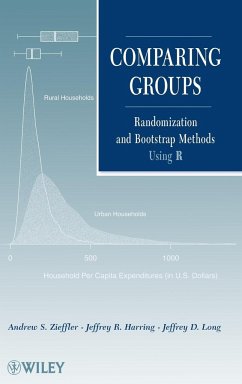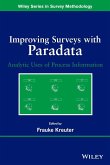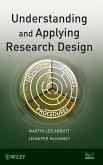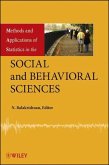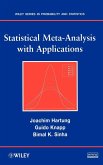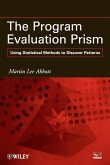A hands-on guide to using R to carry out key statistical practices in educational and behavioral sciences research
Computing has become an essential part of the day-to-day practice of statistical work, broadening the types of questions that can now be addressed by research scientists applying newly derived data analytic techniques. Comparing Groups: Randomization and Bootstrap Methods Using R emphasizes the direct link between scientific research questions and data analysis. Rather than relying on mathematical calculations, this book focus on conceptual explanations and the use of statistical computing in an effort to guide readers through the integration of design, statistical methodology, and computation to answer specific research questions regarding group differences.
Utilizing the widely-used, freely accessible R software, the authors introduce a modern approach to promote methods that provide a more complete understanding of statistical concepts. Following an introduction to R, each chapter is driven by a research question, and empirical data analysis is used to provide answers to that question. These examples are data-driven inquiries that promote interaction between statistical methods and ideas and computer application. Computer code and output are interwoven in the book to illustrate exactly how each analysis is carried out and how output is interpreted. Additional topical coverage includes:
Data exploration of one variable and multivariate data
Comparing two groups and many groups
Permutation tests, randomization tests, and the independent samples t-Test
Bootstrap tests and bootstrap intervals
Interval estimates and effect sizes
Throughout the book, the authors incorporate data from real-world research studies as well aschapter problems that provide a platform to perform data analyses. A related Web site features a complete collection of the book's datasets along with the accompanying codebooks and the R script files and commands, allowing readers to reproduce the presented output and plots.
Comparing Groups: Randomization and Bootstrap Methods Using R is an excellent book for upper-undergraduate and graduate level courses on statistical methods, particularlyin the educational and behavioral sciences. The book also serves as a valuable resource for researchers who need a practical guide to modern data analytic and computational methods.
Computing has become an essential part of the day-to-day practice of statistical work, broadening the types of questions that can now be addressed by research scientists applying newly derived data analytic techniques. Comparing Groups: Randomization and Bootstrap Methods Using R emphasizes the direct link between scientific research questions and data analysis. Rather than relying on mathematical calculations, this book focus on conceptual explanations and the use of statistical computing in an effort to guide readers through the integration of design, statistical methodology, and computation to answer specific research questions regarding group differences.
Utilizing the widely-used, freely accessible R software, the authors introduce a modern approach to promote methods that provide a more complete understanding of statistical concepts. Following an introduction to R, each chapter is driven by a research question, and empirical data analysis is used to provide answers to that question. These examples are data-driven inquiries that promote interaction between statistical methods and ideas and computer application. Computer code and output are interwoven in the book to illustrate exactly how each analysis is carried out and how output is interpreted. Additional topical coverage includes:
Data exploration of one variable and multivariate data
Comparing two groups and many groups
Permutation tests, randomization tests, and the independent samples t-Test
Bootstrap tests and bootstrap intervals
Interval estimates and effect sizes
Throughout the book, the authors incorporate data from real-world research studies as well aschapter problems that provide a platform to perform data analyses. A related Web site features a complete collection of the book's datasets along with the accompanying codebooks and the R script files and commands, allowing readers to reproduce the presented output and plots.
Comparing Groups: Randomization and Bootstrap Methods Using R is an excellent book for upper-undergraduate and graduate level courses on statistical methods, particularlyin the educational and behavioral sciences. The book also serves as a valuable resource for researchers who need a practical guide to modern data analytic and computational methods.

